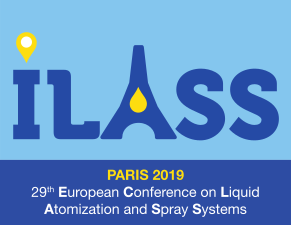In this study, a mass-fraction based fully conservative multi-component two-phase flow solver is considered using
characteristic-wise finite-difference (CWFD) discretization with the 5th-order WENO scheme, in order to reduce numerical
interface smearing and oscillations. Real-fluid thermodynamic properties are accounted for by a vapor-liquid
equilibrium (VLE) model according to the local total density, internal energy and composition of the homogeneous
mixture, with each phase being described by its Peng-Robinson equation of state (PR-EoS). A multi-component
Roe averaging for the cell-face eigen-system in CWFD methods has been developed with pressure derivatives
resulted from the VLE model. Several 1D testing examples, e.g. interface advection, shock-tube problems and
double-expansion cavitation, have been examined to demonstrate the low-oscillation, low-dissipation and robust
performance of the present solver, in comparison with finite-volume schemes. A 2D/3D transcritical injection process
has also been simulated. It has been shown that high-order numerical schemes, such as the current CWFD
method may be the way to reduce the smearing in diffuse interface modelling.
|
|
|
Proceedings > Papers by author > Hu XiangyuA multi-component real-fluid two-phase flow solver with high-order finite-difference schemes
2 : Technical University of Munich
Boltzmannstr. 15, D-85748 Garching bei München -
Germany
1 : IFP Energies nouvelles
IFP Energies Nouvelles, IFP Energies Nouvelles
1 et 4 avenue de Bois-Préau, 92500 Rueil-Malmaison -
France
3 : Institut Carnot IFPEN Transports Energie
* : Corresponding author
IFP Energies Nouvelles
1 et 4 avenue de Bois-Préau, 92852 Rueil-Malmaison -
France
|
| Online user: 61 | RSS Feed |

|


